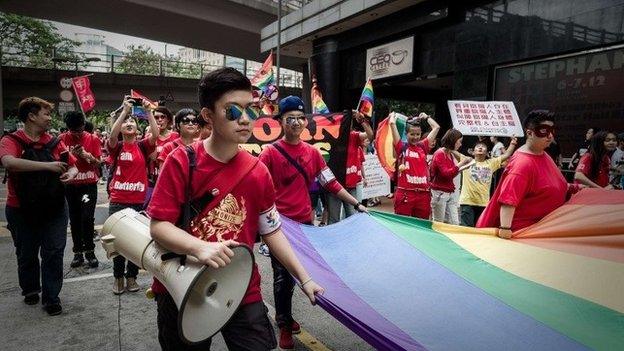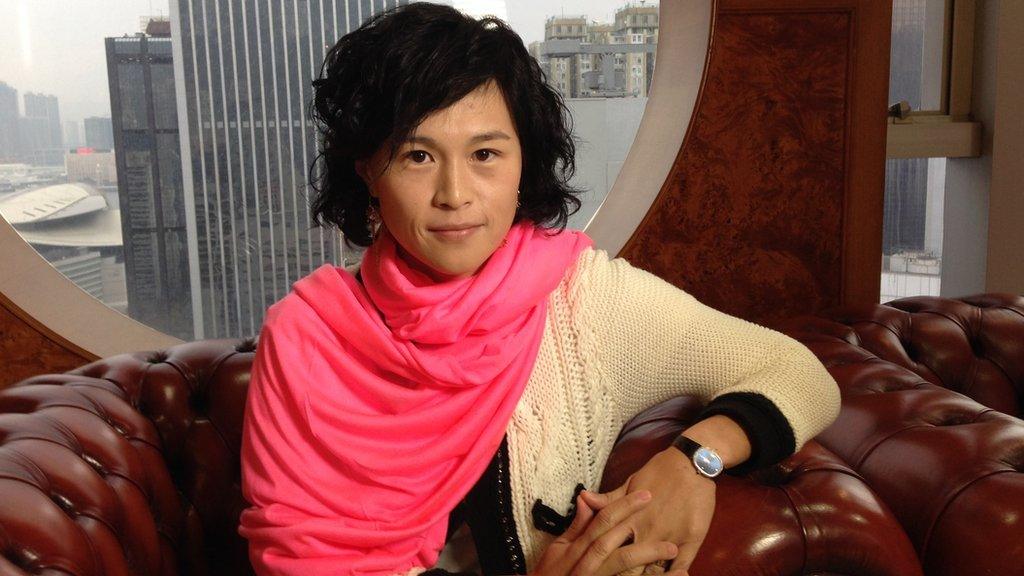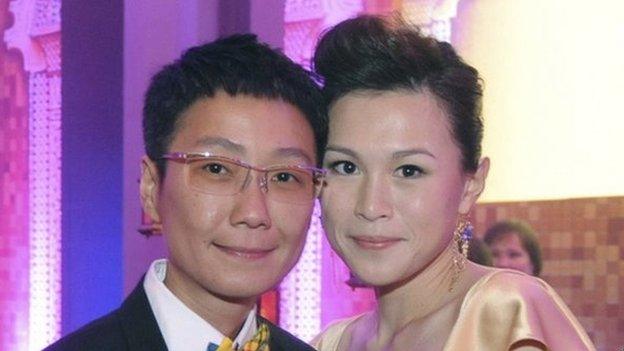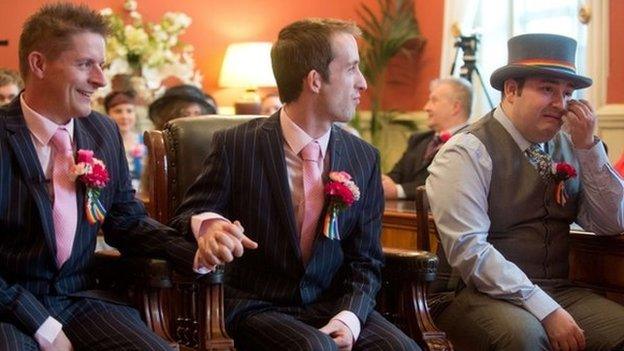Hong Kong's gay marriage objection
- Published
- comments
.jpg)
Sexual discrimination is not banned in Hong Kong
News that Hong Kong's government has objected to plans to allow same-sex couples to wed at the British consulate in the Chinese city has angered gay rights activists.
Hong Kong's best-known lesbian, Gigi Chao, whose billionaire father famously offered $100m (£60m) to any man in the world who can marry her, said the refusal was a "disgrace".
"Yes, we are disappointed, but the news is not unexpected as this former colony is clearly intent on governing from the depths of denial and siding with the populist ochlocracy [mob rule] of homophobic groups," she says.
She says she hopes the right will be extended, but it may not be so simple, legally speaking.

Gigi Chao made headlines when her father offered $100m to any man who would marry her
After years of debate, same-sex marriage became legal in England and Wales in March.
Starting in June, the legislation was extended to cover British nationals overseas.
British embassies and consulates are allowed to conduct same-sex marriages for couples in which at least one partner is a UK national.
The marriage service is offered only in countries where gay marriage is not normally allowed, and can only take place if the host government does not object.
"Unfortunately, the Hong Kong government has raised an objection to the solemnisation of same-sex marriages in Hong Kong," said a spokeswoman at the British consulate.

Gay marriage is openly accepted in Asian societies like Japan

The Pink Dot gay movement first began in Singapore

Gay activists have held parades and protests in Hong Kong before
Countries seen as less cosmopolitan and progressive than Hong Kong have allowed the marriages.
They include the Philippines, Vietnam, Russia and even mainland China, whose domestic policies are generally run separately from Hong Kong.
Australia, under the socially conservative Prime Minister Tony Abbott, has agreed to allow the ceremonies to go ahead, even though the marriages would not be legally recognised.
When asked, the protocol department of the Hong Kong government declined to comment directly on its objection.
"It would be for individual consulates general to decide what functions and services they would wish to provide their nationals," it said in a statement.
"Although Hong Kong does not have laws on same-sex marriage, the government is firmly committed to promoting equal opportunities on the grounds of sexual orientation and gender identity."
The controversy comes in the same week that gay and lesbian rights activists like Ms Chao are preparing to launch the Pink Dot rally in Hong Kong.
Sexual minorities and their families and friends have been invited to the public event, featuring free concerts by some of the city's well-known gay and lesbian entertainers.
The Pink Dot movement actually began in 2009 in Singapore, another former British colony where UK nationals will not be allowed to marry their same-sex partners.
- Published20 February 2014

- Published29 January 2014

- Published8 May 2014

- Published29 March 2014
